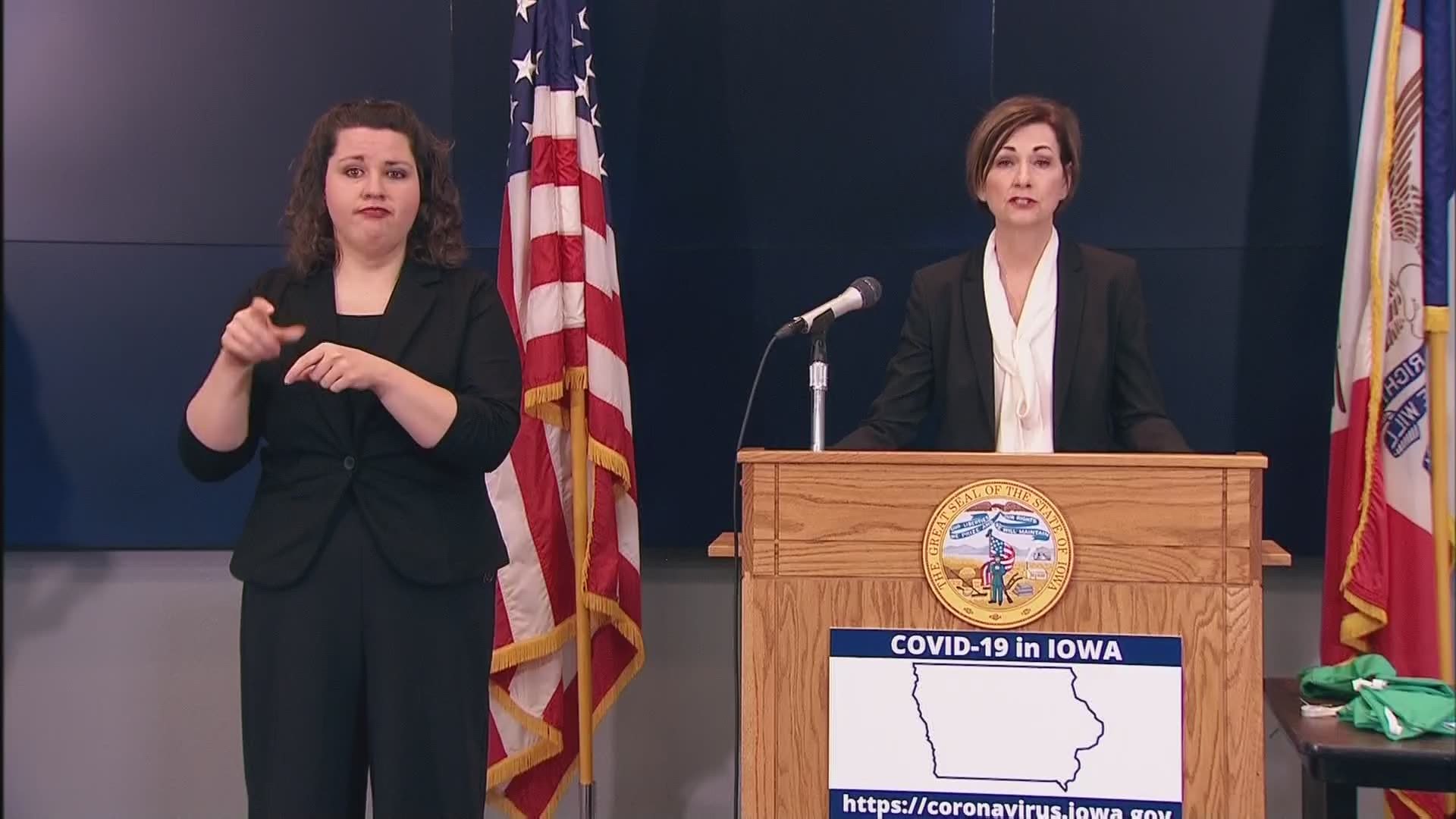WATERLOO, Iowa — After an outbreak of COVID-19 was confirmed last week at the Tyson meatpacking plant in Waterloo, the company has decided to indefinitely suspend operations at the pork plant, beginning Wednesday afternoon.
According to a release from Tyson, the facility has been running at reduced levels of production due to sick workers. The facility's 2,800 employees are invited to come to the plant later this week for coronavirus testing, according to Tyson. So far, the virus has infected more than 366 in Black Hawk County and caused two deaths. Two weeks ago, the county reported just 12 cases.
At its Columbus Junction facility, where dozens of workers also tested positive for COVID-19, Tyson temporarily suspended operations at the plant last week, but on Tuesday, reopened for business. Two workers at that facility died due to the virus.
“Protecting our team members is our top priority and the reason we’ve implemented numerous safety measures during this challenging and unprecedented time,” said Steve Stouffer, group president of Tyson Fresh Meats. “Despite our continued efforts to keep our people safe while fulfilling our critical role of feeding American families, the combination of worker absenteeism, COVID-19 cases and community concerns has resulted in our decision to stop production."
RELATED: LULAC: Latino community at high risk for COVID-19 due to unsafe conditions at meat processing plants
On Tuesday, Gov. Kim Reynolds was asked by reporters why she didn't call for Tyson to shut down its Waterloo facility. She said that the plants are essential businesses and must be kept running to ensure the nation's food supply chain is sound. She was also asked to explain the risk assessment she makes in keeping plants open while workers continue to come down with COVID-19.
"We want to make sure that we are protecting the health and well-being of all Iowans," said Reynolds. "I want people to know that 50 to 70 percent of the United States population is projected to get this. So people are gonna get it. It is very contagious, especially in large gatherings. And 80 percent of the individuals that get it are only going to get mild symptoms, so we shouldn't lose sight of that as well. So we really need to focus on the individuals who are vulnerable and who have underlying conditions. So we really need to do everything we can to mitigate their exposure."
Affected Waterloo team members will continue to be compensated while the plant is closed. The timing of resumption of operations will depend on a variety of factors, including the outcome of team member testing for COVID-19, according to Tyson. Tyson Foods’ other meat and poultry plants currently continue to operate, but some are running at reduced levels of production either due to the planned implementation of additional worker safety precautions or worker absenteeism.
Earlier this week, Black Hawk County officials had called on Tyson to close the facility.
After the announcement about the Waterloo facility, Local 5 spoke to Trish Cook, a pork producer in Buchanan County who contracts with the packing plant to provide animals to the facility. She said the closure of the plant will have ripple effect throughout the entire industry.
"Anytime that there is a capacity that has decreased in the industry, everyone is gonna feel the effect," said Cook. "We sell the most of our pigs to Tyson facility in Waterloo...it's very convenient. So it's going to take a lot of shuffling and adjusting of the diets of the pigs to deal with the situation that we are dealing with today."
Cook said that there is a fear for all pork producers that they might have to destroy their pigs, or euthanize them, because of the decreased demand from the meatpacking facilities.
"Pork producers, we all care for our animals and the last thing we want to do is euthanize them in a way that doesn't allow them for the food chain for people to eat..." said Cook. "I don't have direct knowledge of anyone doing that, but the numbers are scary. Right now, the packer capacity has decreased about 25 percent...that leaves about 600,000 pigs each week that we have to find room for. Whether that is putting them on a diet where they don't grow as much, or you double up the space of some smaller pigs which has another set of implications. So it's a pretty scary reality that we're facing in the hog industry."
The USDA has allocated money to farmers to help them during the pandemic, but pork producers are asking for more assistance.


